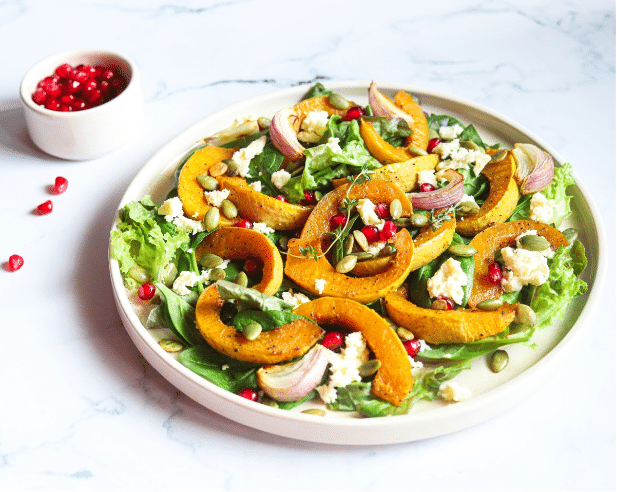Pumpkin seeds are an edible seed typically roasted for consumption. They are a common ingredient in Mexican cuisine and are often eaten as a healthful snack.
They are sometimes referred to as pepitas, Spanish for “little seed of squash.”
This feature is part of a collection of articles on the health benefits of popular foods.
It looks at the possible health benefits of pumpkin seeds, the nutritional content, how to use pumpkin seeds in the diet, and possible health risks.
Benefits
Pumpkin seeds are a good source of healthful oils, magnesium, and other nutrients that enhance the health of the heart, bones, and other functions.
Seeds, in general, are considered excellent source
of potassium, magnesium, and calcium.
Plant seeds are also a good source of polyunsaturated fatty acids (PUFAs) and antioxidants.
The fatty acids in pumpkin seeds contain a range of beneficial nutrients, such as sterols, squalene, and tocopherols. Researchers have described the fatty acid profile of seeds, grains, and legumes as “favorable.”
Bone health
Pumpkin seeds are a good source of magnesium, which is important for bone formation.
High magnesium intake is associated with a greater bone density and has been shown to decrease the risk of osteoporosis in women after menopause.
Diabetes
Nutrients in pumpkins seeds may help protect against type 2 diabetes. Reactive oxygen species (ROS) play a role in the development of diabetes, and antioxidants may help reduce the risk.
In one experiment, diabetic rats started to recover after following a diet containing a flax and pumpkin seed mixture.
The seeds are a good source of magnesium.
Studies have suggested that for every 100 milligrams (mg) a day increase in magnesium intake, the risk of developing type 2 diabetes decreases by approximately
A 100-gram (g) serving of pumpkin seeds can contain over 90 mg of magnesium.
Low magnesium levels can impair insulin secretion and lower insulin sensitivity.
Heart health
Improvement in lipid profiles has been seen with an intake of 365 milligrams of magnesium per day.
Heart and liver health
Pumpkin seeds contain omega-3 and omega-6 fatty acids, antioxidants, and fiber. This combination has benefits for both the heart and liver.
The fiber in pumpkin seeds helps lower the total amount of cholesterol in the blood and decrease the risk of heart disease.
Research to date suggests that omega-3s can:
- decrease the risk of thrombosis and arrhythmias, which lead to heart attack, stroke, and sudden cardiac death
- reduce LDL, total cholesterol, and triglyceride levels
- reduce atherosclerosis, a fatty buildup on the artery walls
- improve endothelial function, a measure of circulatory health
- slightly lower blood pressure
Pumpkin seeds have been found to contain sterols. In one investigation, scientists found that there were 265 mg of total sterols in every 100 g of pumpkin seed kernel.
Plant sterols and phytosterols are known to help reduce levels of “bad” LDL cholesterol.
Researchers carrying out a review of clinical trials concluded in 2013 that the combination of nutrients found in plant seeds can help protect the cardiovascular system and help prevent coronary heart disease and type 2 diabetes.
A rodent study has suggested that the nutrients in a mixture of flax and pumpkin seeds could provide some protection for the liver and also against atherosclerosis.
Weight loss and digestion
Other benefits of a diet that is high in fiber include:
- helping maintain a healthy weight, because the individual feels full for longer after eating
- enhancing digestive health
The immune system
Pumpkin seed oil has a high content of vitamin E and other antioxidants.
Vitamin E helps strengthen the immune system and maintain healthy blood vessels. The ODS recommend eating seeds as a source of vitamin E.
Insomnia prevention
Pumpkin seeds are a rich source of tryptophan, an amino acid.
Tryptophan has been used to treat chronic insomnia because the body converts it into serotonin, the “feel-good” or “relaxing” hormone, and melatonin, the “sleep hormone.”
A study published in 2005 in Nutritional Neuroscience suggested that consuming tryptophan from a gourd seed alongside a carbohydrate source was comparable to pharmaceutical grade tryptophan for the treatment of insomnia.
Having a few pumpkin seeds before bed, with a small amount of carbohydrates such as a piece of fruit, may be beneficial in providing your body with the tryptophan needed for melatonin production.
Pregnancy
Pumpkin seeds are a good source of zinc.
Researchers have determined that every 100 g of pumpkins seeds contains 7.99 mg of zinc.
For male adults aged 19 years and above, the ODS recommend a daily intake of 11 mg of zinc and 8 mg for women.
The World Health Organization (WHO) estimate that over 80 percent of women worldwide have an inadequate zinc intake. Low levels of zinc alter circulating levels of multiple hormones associated with the onset of labor.
Nutritionists recommends additional zinc during pregnancy, as it is likely to improve health outcomes.
Zinc is also essential for normal immune function and prevention of uterine infections. All of these could potentially contribute to preterm delivery.
Dietary tips
Pumpkin seeds can be eaten alone as a snack or added to dishes for extra taste and a crunchy texture.
Quick tips:
- Top salads with pumpkin seeds.
- Make homemade granola with a mixture of nuts, pumpkin seeds, and dried fruit.
- Brush pumpkin seeds with olive oil, season with cumin and garlic powder, and bake until brown and toasted.
- Make your own pumpkin seed butter (like peanut butter) by blending whole, raw pumpkin seeds in a food processor until smooth.
Risks
Seeds have a high-fat content, so they are prone to rancidity. Keep pumpkin seeds in a cool, dark, and dry place to improve shelf life.
If stored properly, pumpkin seeds will keep for 3-4 months.
Young children should be supervised when eating nuts or seeds, as they could cause choking.
It is the total diet or overall eating pattern that is most important in disease prevention and achieving good health. It is better to eat a diet with variety than to concentrate on individual foods as the key to good health.





